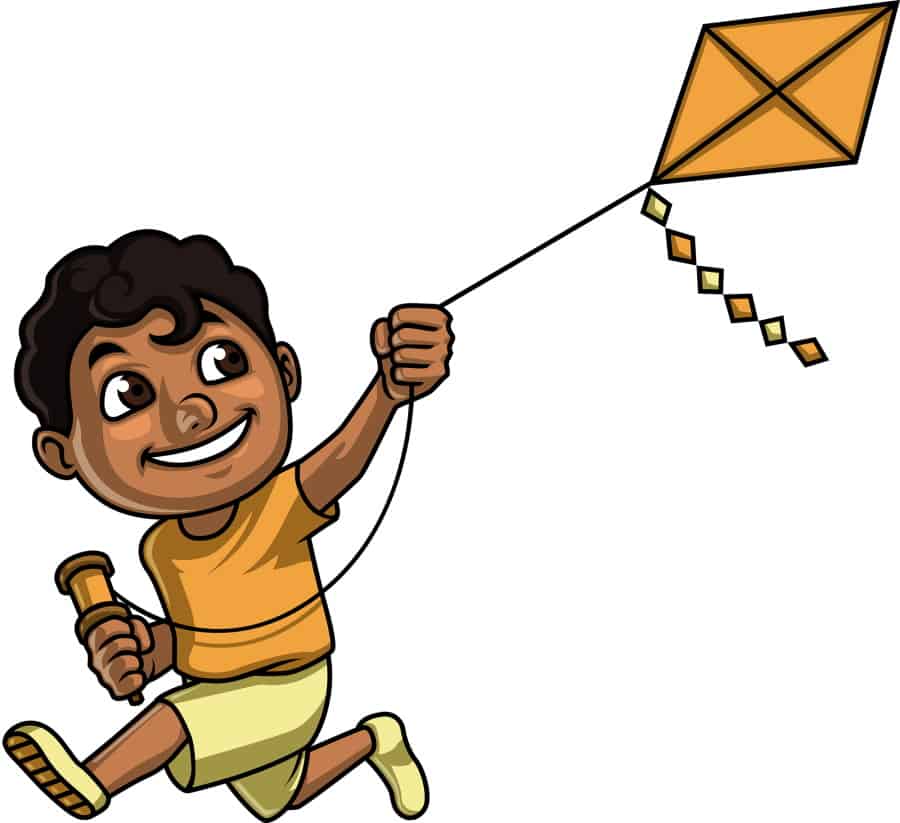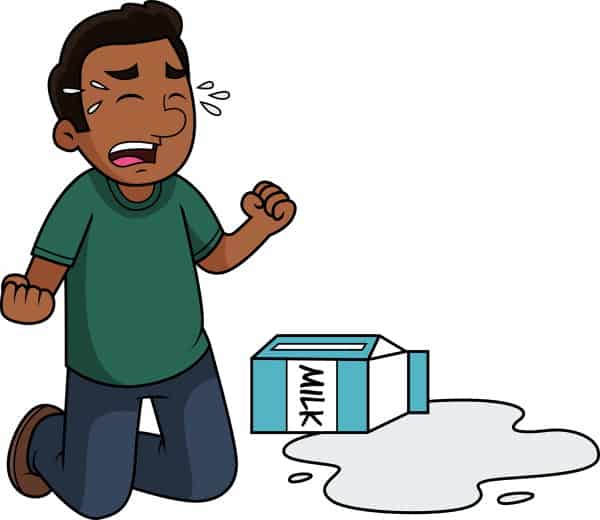
To get through life, one must possess a sense of humor. However, the process of teaching kids how to find humor in one’s every day life may seem somewhat challenging if you aren’t a comedian. So how do you go about teaching a kid to find humor in the norm?
The best way to teach kids how to find humor is by role modeling: say jokes on a regular basis; make ridiculously specific statements on the daily mundane; pose funny and relatable observations about the world; be absurd; and when in doubt… slip and fall on a banana peel!
Kids are hungry for humor and levity. You’ll notice once you embrace these simple tips on how to find humor (and help your kids find it too), you’ll be living with some Lucille Balls and Rodney Dangerfields (the G-rated Dangerfield that is!)!
Contents
Why is Humor So Important?
Studies show that children with well-developed senses of humor are happier, less pessimistic, and believe in themselves more. They also tend to be more tolerant and accommodating. Generally speaking, kids with the ability to find humor in their lives are also more likely to show higher levels of resiliency when life gets difficult.
Learning a healthy sense of humor also helps kids to excel socially and adapt on an emotional level. Most of all, a sense of humor makes life more enjoyable. If we aren’t striving for a joyful life, then what are we doing? (I’ve also written tips about adding humor into the classroom.)
Understanding Humor at Different Developmental Stages
Humor looks different to each and every individual, and looks quite different to a baby than it does to an adult. For this reason, it is helpful to understand the nuances between age and humor (and how to aid a kid in finding age-appropriate humor.)
- Babies – Babies don’t understand one liners, so that kind of humor won’t work for them. But they do respond to smiles, laughter and tickles. When babies grow to be around 9-15 months old, they can even recognize ‘unexpected behaviors.’ So when Daddy wears mommy’s high heels and teeters around the living room, a baby is likely to laugh. Not because a baby knows about high heels, but because the baby has picked up enough human context clues to understand Daddy is doing an unusual behavior, and unusual behaviors are funny.
- Toddlers – Toddlers are suckers for physical humor, silly words, and rhymes. Bump into some walls, pretend to fall over when being gently tapped, and you’ll have a toddler in a literal fit of giggles. Intentionally pronounce a toddler’s name wrong, and they’ll be shouting their corrections in between prolonged laughter. It’ll feel so easy, like stealing candy from a… hey wait a minute!
- Pre-Schoolers – As a child begins to develop more hunger for learning, they will begin finding humor in things that are incongruous (that is, inappropriate or out of place or context). This is in part because they are excited to ‘know’ facts about the world. So when a photo, book, or movie gets it ‘wrong,’ there is pure delight and recognition in the mind of a preschooler.
- K-12 Kids – As kids enter school and learn more, and grow more social, slapstick humor, word play, and big exaggerations become increasingly more funny. When talking to your six-year-old, you might say things like “Wow, that building looks like it’s one-million feet tall!” Kids at this age love hearing gigantic numbers they know are exaggerations. When I was teaching figurative language, kids really enjoyed the sections on onomatopoeia and hyperbole for these very reasons. As kids grow older, they’ll be able to understand more nuanced comedy like puns, irony, and even sarcasm. However, learning sarcasm can be challenging for some kids who take everything at face value. You may need to throw in some big, obvious ‘winks’ to let them in on the joke.

Learn to Tell Jokes to Teach Them to Tell Jokes
This doesn’t mean you have to be a comedian and create your own jokes. Instead buy some joke or riddle books and read them together with your child. Our Fun Jokes for Kids Coloring Book (available from Amazon) is an easy, inexpensive way to start.
Here are a few jokes from the book:
- “How did Count Dracula scare a doctor?” He started losing patients.
- “What is a ninja’s favorite fish?” A swordfish.
- “There once was a pirate who learned to speak parrot.” There once was a pirate who learned to speak parrot.
- “How do you tell a monster his breath stinks?” From far, far away.
You and your child can even hold a family competition for who can find and tell the funniest joke. Make it a regular event! Hold your stand-up contest at your weekly family fun night. Include popcorn and soda and you’ve got yourself a memorable event your kids will look forward to for years to come!
Another way to infuse your family life with jokes is by setting daily time for jokes. This is simple to do if you include a joke at the breakfast or dinner table. Or end your night after prayers by saying a joke when tucking your kids into bed. This also will become something your child will look forward to in his or her daily routine. And trusts me, they’ll let you know when you forget!
Using Humor to Diffuse Tension
There is almost always a time and place for humor. Now of course, there will be an outlier or two. When disciplining, for example, humor is unwanted and unhelpful. In fact, it might be downright confusing. At church is another time when humor may not be appropriate; though in sprinkles here and there, it can be welcome. But in times of tension or awkward situations, a little levity can be tremendously helpful.
Children fluctuate between one big emotion to the next. All it takes is a little lack of sleep or low blood sugar and suddenly your sweet five-year old morphs into a nightmarish monster. Strangely enough, yelling at a kid to ‘stop that’ behavior when they are in a heightened state of irrational emotion (i.e.: crying because they’re exhausted) doesn’t work. What does work when kids are losing their minds to big emotions? Humor.
All it takes is pretending to bonk your head on a wall and fall down, and those crocodile tears turn into tears of laughter. Blow a raspberry on a kids’ belly. Pretend to pass gas! Or turn on some Mr. Bean! You name it. Laughter is the best way to diffuse tension.
Other ways to diffuse tension:
- Prat falls (ex: slipping on a banana peel, running into somehow, accidentally hitting yourself. Any physical type of humor generally works for little kids)
- Mispronouncing words. It may sound simple, but kids love this. Especially when you continue to say a word wrong.
- Tickle monster, tummy raspberries, farting noises (classic)
- Making silly faces
- Wearing underwear on your head and saying, ‘how do I look?’
- Playing broom guitar or pots & pan drums

Helping kids transition from their big emotions (anger, sadness, fear) by using humor is critical to their development. Kids must learn that our emotions are fleeting and that big feelings do not rule their existence. However, you have to be the model. You have to encourage them to laugh it off, often, by being the person they are laughing at. Yes. You must be the butt of the joke (pun, most certainly intended.)
Teach Observational Humor: It’s Not just for Jerry Seinfeld
“It’s funny because it’s true” is a phrase made famous by The Simpsons. While it seems obvious, much comedic fodder comes from the simple act of observing and pointing out things in our world. Why? Because the acknowledgment of truth is inherently funny. It helps us relate to one another by a shared understanding that ‘the world is strange, and so are the people in it.’
Kids typically excel at observational and absurdist humor, as they lack filters and because they are encouraged to use their imaginations to dream big, absurd thoughts!
When attempting to describe features on their face, I once heard a kid say: “my lips are the balcony for my tongue.” This is both absurd and absurdly true. Kids have a way of trying to link two ideas together, often when they’ve just learned about something new. Now, these parallels do not always make sense, but therein lies the humor.
Encouraging observational humor requires a bit of observation yourself. When you see something that tickles you, share it with the kids in your life. You don’t need to have a roster of ‘one liners’ to tell kids. The simple act of relaying observations that are ‘funny cuz’ they’re true’ is enough to help infuse humor into a kid’s life in a more subtle way.
Find the Funny in Science Because Science is Funny
Observational humor will help your kid cope with things in their world that seem strange, confusing, or unfair. In fact, Robert Lynch of Rutgers University recently published a study in the journal: Evolution and Human Behavior. His study placed specific emphasis on the idea of things being funny ‘because they’re true.’
After studying 60 students of varying backgrounds, Lynch concluded that what the students laughed at directly reflected biases and unconscious beliefs they held. This tells us the truth behind ‘its funny cuz’ its true’ isn’t purely because you recognize something you know or understand. It’s funny because it reveals something about the way people actually think!
Funny Because It’s Common
Another reason observational humor is funny is because just about everyone can relate. I think that’s the main reason the Seinfeld show was so popular and lasted 9 seasons. After all, it was a show ‘about nothing’, right (all Seinfeld fans will know what I mean)?
The main character is a comedian (like the actor portraying him) living in a pretty large apartment in Manhattan. Not many people can relate to that. But the plot centers around the humor Jerry Seinfeld finds in his daily life observations and points out to his friends and us, the audience. From the long waits in a Chinese restaurant to the rental car company failing to keep the reservation you made, Seinfeld is able to make us laugh at his musings on these. And that’s what we relate to.
Specificity is Always Funny So Specifically Teach It
Improv comedy is one of the best things a kid can learn. World renowned improv schools, like The Second City, teach kids to trust their comedic instincts, timing, and their own specificity. For some reason, the use of specifics makes anything ten times more fun.
Definition of improv
: of, relating to, or being improvisation and especially an improvised comedy routine (Source: Merriam-Webster)
Take a look at these sentence comparisons. Which is funnier? The generic phrase, or the one that possesses gratuitous specificity?
- “Man, do I love cereal.” Or “Man, am I coo-coo for cocoa puffs!”
- “Looks like we’re running late.” Or “Looks like we’re running fifteen minutes and thirty-two seconds late…not that I’m counting!”
- “Wow, grandma sure can dance!” or “Wow! Grandma sure can do the stanky-leg!”
Notice that the second phrases themselves are not jokes. They are, rather, sentences that use specificity, and by doing so, somehow become funny. This is even easier than adding jokes…because you’re just making the mundane absurd and ridiculous.
There are a few TV shows where characters have become well-known and popular for making you laugh. But really, it’s just their ability to make simple conversational phrases funny by their comedic inflections. Chandler Bing from Friends and Barney from How I Met Your Mother are two who readily come to mind. Now I’m not saying your should watch these tv series with your kids; on the contrary, I don’t recommend that. But mimicking some of their comedic mannerisms might be useful.
Punchline for Teaching Kids to Find Humor
Teaching kids humor can help make them into fun-loving adults who are ready to understand and take on the world. Teaching your kids all types of humor will help them be able to find humor in everything, and it’ll help teach them how to take social cues.
To recap: you can help your child find humor by
- telling jokes on a regular basis
- making ridiculously specific statements about the mundane
- posing funny and relatable observations about the world
- acting plain ol’ silly and out of the norm
- and when in doubt… slipping on a banana peel!
Remember, they are watching more than listening. So, get going with the silly. Now is a great time.
